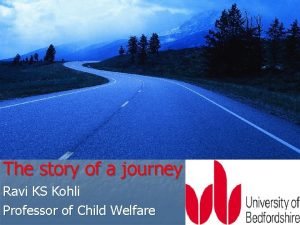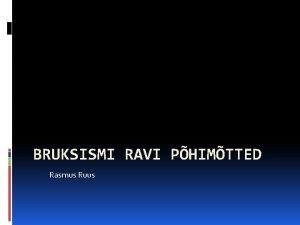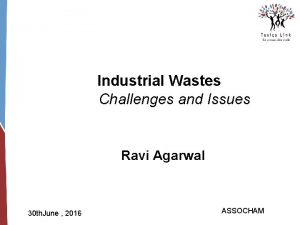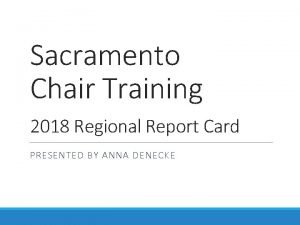The story of a journey Ravi KS Kohli










- Slides: 10

The story of a journey Ravi KS Kohli Professor of Child Welfare

Thinking about journeys of learning Based on my research into the lives of refugee children, I will consider: n Journeys that take us to places where we feel safe, where we belong, and where we can be successful n Contextual influences that turn our territories into desirable or undesirable places to live and learn n What we do to make citizens out of those who wish to join us

Refugee journeys to citizenship n n Firstly, acclimatisation, learning or attempting to learn the language, norms, roles and customs of the host community, Secondly, adaptation, learning to deal with new roles and customs as they rebuild their lives and identities. Thirdly, participation in host societies, at the level of employment, education and training, and living in contexts that are safe and comfortable Fourthly, resettlement takes place at the level of shifts and absorption of cultures of belonging

Resettlement processes Safety Belonging Success

Cultures of reception n n Pathology: Those scarred by conquest, war, famine and death, need to be mended Bureaucratisation: setting up systems, categories, and rules to administer and tidy up asylum as a ‘messy’ reality Watch your back: powerful cliques, looking caring but in an acute struggle for supremacy Crisis-driven: policies determined by fear of flooding or single catalytic events Welcome: Providing Sanctuary for refugees as real people with the right to a ‘home’

Organisational Cultures Hawkins and Shohet (1997) describe five different types of cultures within helping organisations: 1. The personal pathology culture 2. The bureaucratic culture 3. The watch-your-back culture 4. The reactive crisis-driven culture 5. The learning/developmental culture Hawkins P and Shohet R (1997) Supervision in the helping professions. Buckingham. Open University Press

The learning/developmental culture n n n People feel safe as part of the duty of care that is valued and prioritised The quality of relationships matter, so that civility, clarity, precision, reliability, prompt attention and kindness become part of the fabric of experience for staff Learning is for everybody, and a shared responsibility ‘Potential’ rather than ‘fault’ and the comanagement of problems and crises are identified as a starting point for learning How different people make their journey through this culture is understood and valued. There is a will to be balanced, connected, and ethical when sustaining reciprocity between staff

Domains of social work practice People who are known to have died Therapists bridging Witnesses People who are missing Medics Hidden friends & family Carers Living family members Teachers Friends Police Practical help Lawyers linking Companionship bonding Companions Immigration Kohli, RKS (2007) Social Work with Unaccompanied Asylum Seeking Children. Palgrave.

Journeys to professional citizenship Practical help witnessing companionship safety simple stories puzzles and worries navigation advice belonging linking bridging bonding success complex logistics reflective accounts reflexive accounts

The learning journey as safety, belonging, success Learning and re-learning challenge our safety: expect to be perturbed n Acclimatise, adapt, participate, absorb n Make fragments fit the whole n Make yourself and others feel safe: Link, bridge, bond: belong with others n Endure, endure: keep the faith n Success is hardly ever an accident n



















